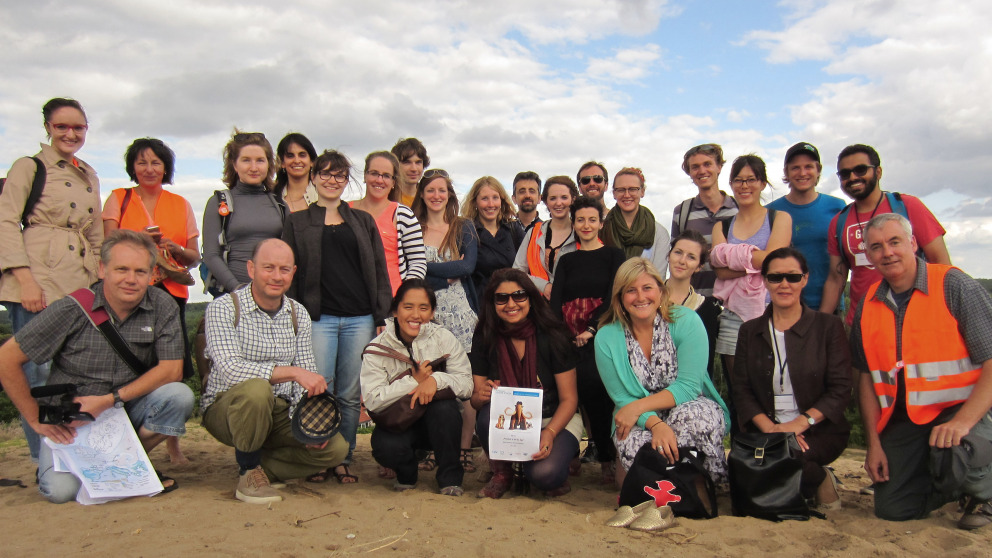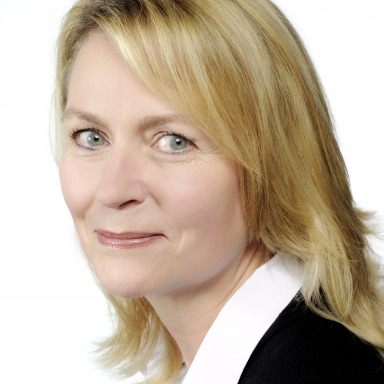Headline:
Planning the Future of Big Egg Island – Potsdam Summer School Prepares Participants for Challenges of a Changing Arctic

The kick-off of the Potsdam Summer School on the “Arctic in the Anthropocene” set the tone for two weeks of jointly exploring policy and science questions in a multidisciplinary way. Talks by representatives of the Potsdam institutes organising the Summer School, experts on sustainability and the Arctic, and a member of the Saami, an indigenous group in the Arctic, provided insights into the changing Arctic. The next three days were focused on the natural sciences with lectures and discussions on the basic elements of the Arctic climate system, including glaciers, sea ice, permafrost, and marine systems. The lectures were delivered at the Albert Einstein Campus by scientists from the Alfred Wegener Institute - Helmholtz Centre for Polar and Marine Research (AWI), the German Research Centre for Geosciences (GFZ), and the Potsdam Institute for Climate Impact Research (PIK).
The Summer School – the first such event to be held in Potsdam – was organised by several Potsdam-based research institutes that are actively studying the Arctic. In addition to the Institute for Advanced Sustainability Studies (IASS), they include the University of Potsdam, the AWI, the GFZ and the PIK.Thirty-eight up-and-coming scholars from twenty-six countries discussed urgent matters concerning climate change in the Arctic from 23 June to 4 July 2014.
During a day at the University of Potsdam, a rich set of discussions dubbed “science-policy duets” captured a number of areas in the Arctic where science and policy intersect. These included discussions of black carbon – the main element of soot – the increasingly threatened fresh-water systems in the Arctic, the challenge of communicating complex topics on climate, and Arctic shipping and transport with a focus on the likelihood of increased Arctic shipping traffic and the development of the IMO Polar Code.
Talks on Arctic governance, planning processes and international geopolitical concerns in the Arctic featured in the transition from the first week to the second. The highlight was an exercise to plan the future of Kwan K’iit, or Big Egg Island. Kwan K’iit is a fictitious island located in the Arctic and Subarctic. It faces socio-economic and environmental challenges ranging from outmigration to deteriorating fish stocks, among others. Promising resource exploitation projects are exciting some outside investors and residents alike. At the same time, indigenous peoples are trying to connect with new opportunities while staying true to their culture and history. There are calls for transitioning the island in accordance with new sustainable paradigms that part with old economic ‘truths’.
Summer School participants were divided into stakeholder groups. These ranged from local stakeholders (indigenous groups, food providers, environmental NGOs) to government (federal, territorial), industry (mining, oil and gas, logging, renewable energy), and an advisory panel consisting of natural and social scientists. Every participant was given an individual secret agenda to follow. Of course, agendas often contrasted sharply within and among stakeholder groups. This led to realistic challenges in the planning exercise: what were we planning for? How were we going to achieve our goals? What was best for Kwan K’iit? After two and a half days of the exercise, the participants increasingly found their role in the process and were able to agree upon a vision including concrete steps to move forward. During a thorough debriefing session, it became clear that mutual trust and active communication are essential for reaching agreement.
Land-use planning processes have significantly shaped the political landscape of the Arctic and Subarctic in recent decades. Aboriginal land claims settlements in Canada provide a concrete example of the need to constructively adjudicate between different claims to access, autonomy, or power. In that sense, the planning exercise was a useful, realistic reenactment of Northern governance. However, the sometimes tedious process left some participants physically exhausted. Yet this can be seen as further evidence that the exercise truly mirrored land-use planning meetings in the “real world”.
Photo: © AVZ/University of Potsdam

